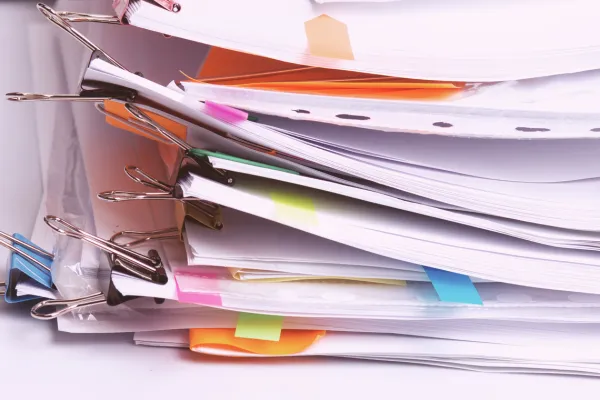
What I Wish Every Dementia Caregiver Knew About the Paper Trail
When you become a dementia caregiver, you’re often prepared to help with meals, bathing, safety, and emotional support.
What no one prepares you for is how quickly the role becomes a part-time medical case manager.
You’re suddenly expected to track:
Medications that change monthly (or weekly)
Doctor visits across multiple specialties
Behavioral symptoms that come and go
Emergency room visits, hospital stays, and discharge instructions
It’s enough to make your head spin—and yet, this “paper trail” becomes a lifeline.
In this post, I want to walk you through what I’ve learned from working with over 7,000 caregivers, and from being one myself:
What actually matters when it comes to organizing the medical side of caregiving—and how to stop carrying it all in your head.
The Problem: Caregivers Are Expected To Track Everything
The healthcare system moves fast. It assumes that families are keeping up.
But here’s the truth: most caregivers were never trained to do this.
You're not a nurse. You're not a case manager. But you’re being treated like one.
You're told to:
Know every medication and dosage
Explain symptom changes in perfect detail
Keep every provider updated—when they’re not even talking to each other
And if you miss something? You carry the guilt.
But it’s not your failure—it’s the system’s.
Why The Paper Trail Matters In A Crisis
You may not need detailed tracking every day.
But in a crisis—when your loved one falls, or lands in the ER, or suddenly changes—that paper trail becomes critical.
Having the right information can mean the difference between:
A correct diagnosis and a dangerous assumption
Receiving timely care vs. delayed treatment
Getting your loved one home sooner—or not at all
What you need isn’t everything.
It’s the right things. Accessible. Up to date. All in one place.
What To Actually Keep Track Of
Here’s what I recommend every caregiver have in their back pocket—physically or digitally.
1. Current Medications
Include medication names, dosages, and timing.
Update this after every doctor visit or hospital stay.
2. Recent Hospital Visits or Surgeries
Note the date, reason for admission, and discharge instructions.
This helps connect the dots when new symptoms arise.
3. Provider List
Primary care, specialists, therapists, pharmacy contacts—plus phone numbers.
In a crisis, you won’t want to dig through old papers or voicemails.
4. (Optional) Behavior or Symptom Changes
A small log can help doctors determine if it’s time to adjust medications or evaluate further.
Even quick notes on your phone can help.
You Don't NEED A Binder - You Need A System
You don’t need to become a professional case manager to feel confident.
You just need a small, sustainable system to lean on.
That’s why I created the Medical Assistance Planner (MAP)—a printable, no-fluff tool that holds the information you actually need.
It’s what I used with patients in my house calls, and it’s what I use in my own family.
If you’re looking for a place to start, this is it.
And if not the MAP, then start with a notebook or a one-page summary.
One step forward is still a step in the right direction.
Final Thoughts
You’re not unorganized. You’re overwhelmed.
You’re not forgetful. You’re human.
And you’re not failing—you're carrying more than anyone should, with very little help.
Let’s change that.
🧾 Start your system.
💪 Advocate with confidence.
💜 And know that I’m here sharing for you, while you are caring for them.
🫂 Join the Conversation:
Need a community where you can ask for help and get real support?
Join my FREE Caregiver Support Group here
👉 Dementia Caregivers Success & Support Network.
📚 Resources to Support You:
Grab your Medical Assistance Planner and get organized.
Explore the Dementia Caregivers Academy Course for in-depth strategies and support.
Download your free log to track dementia behaviors on our Resources page.
PS.
This video is also posted on our YouTube Channel!

dementia caregiving organization, dementia caregiver medical binder, caregiver documentation tips, how to track dementia symptoms, medical emergency dementia care, caregiver tools for dementia, family caregiver record keeping, dementia care checklist, dementia caregiver support, how to prepare for dementia doctor visits
